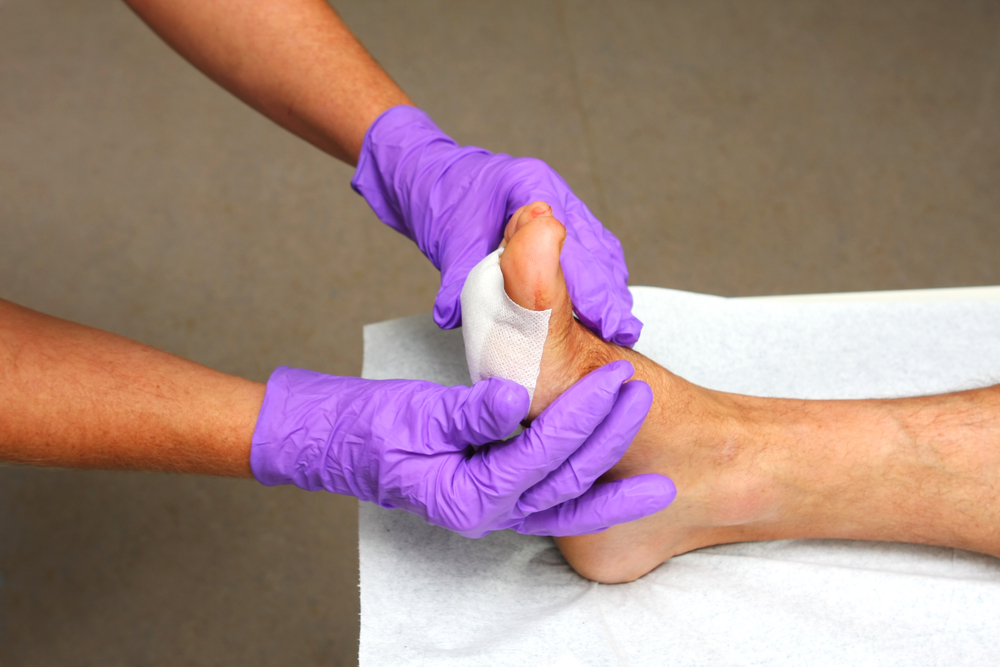Wounds Require Immediate Treatment

Minor wounds can be treated simply by thoroughly washing the affected area, followed by covering it with a bandage. However, if the wound is severe, it may be beneficial to get medical attention. There are noticeable signs of a serious wound. These can include consistent bleeding that won’t stop when direct pressure is applied to it, or if the wound is a result of an accident or injury. The wound may require stitches, or skin glue may be used which will depend on the type of wound that is being treated. Wounds on the feet can have serious implications, and must be treated promptly and correctly. If you are a diabetic patient, and have developed wounds on the feet, it is strongly advised that you are under the care of a podiatrist who can effectively treat your wounds and help you to manage your condition.
Wound care is an important part in dealing with diabetes. If you have diabetes and a foot wound or would like more information about wound care for diabetics, consult with one of our podiatrists from Foot & Ankle Specialists of Nevada. Our doctors will assess your condition and provide you with quality foot and ankle treatment.
What Is Wound Care?
Wound care is the practice of taking proper care of a wound. This can range from the smallest to the largest of wounds. While everyone can benefit from proper wound care, it is much more important for diabetics. Diabetics often suffer from poor blood circulation which causes wounds to heal much slower than they would in a non-diabetic.
What Is the Importance of Wound Care?
While it may not seem apparent with small ulcers on the foot, for diabetics, any size ulcer can become infected. Diabetics often also suffer from neuropathy, or nerve loss. This means they might not even feel when they have an ulcer on their foot. If the wound becomes severely infected, amputation may be necessary. Therefore, it is of the upmost importance to properly care for any and all foot wounds.
How to Care for Wounds
The best way to care for foot wounds is to prevent them. For diabetics, this means daily inspections of the feet for any signs of abnormalities or ulcers. It is also recommended to see a podiatrist several times a year for a foot inspection. If you do have an ulcer, run the wound under water to clear dirt from the wound; then apply antibiotic ointment to the wound and cover with a bandage. Bandages should be changed daily and keeping pressure off the wound is smart. It is advised to see a podiatrist, who can keep an eye on it.
If you have any questions, please feel free to contact one of our offices located in Sahara Ave and Springs Rd in Las Vegas, and Henderson, NV. We offer the newest diagnostic and treatment technologies for all your foot care needs.
